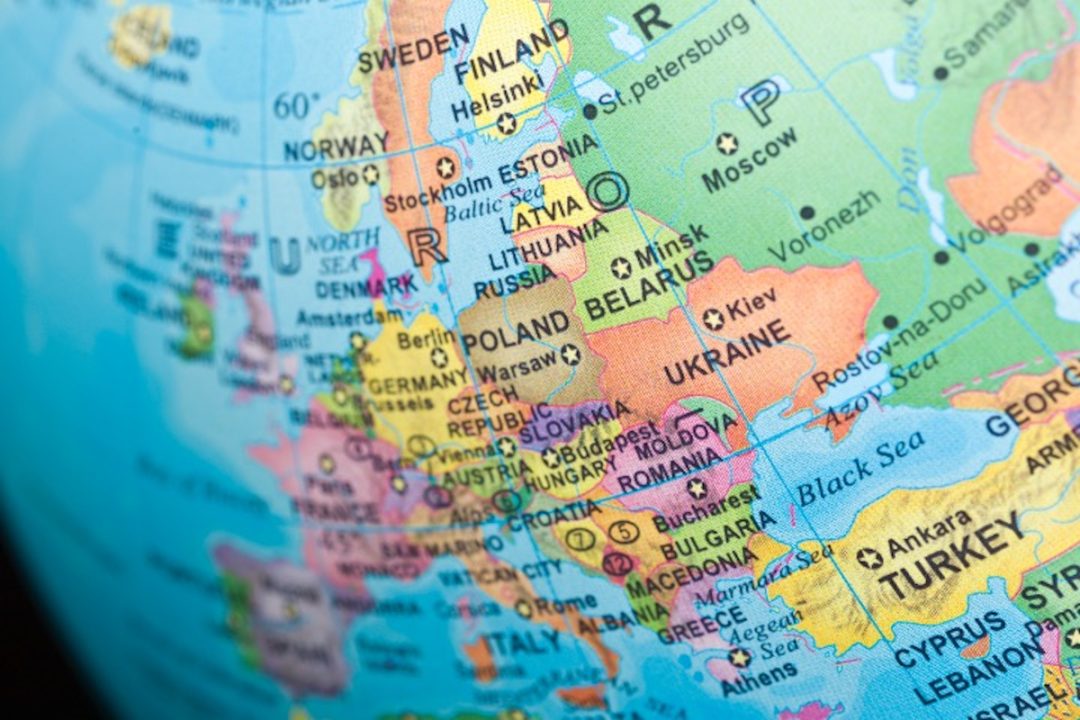
Ukraine’s president is feverishly working to ensure that his nation is among the fortunate few to lose a war without losing territory. The heads of the United States and Russia are meeting Friday in Alaska to discuss a peace proposal between Moscow and Kyiv. The terms under consideration include Ukraine ceding eastern territory that Russian troops now control.
President Donald Trump confirmed during a recent White House press conference that he’s on board with a deal that includes Russia gaining Ukrainian territory. “There’ll be some land swapping going on,” the president said. “I know that through Russia and through conversations with everybody.”
European Opposition
Ukrainian President Volodymyr Zelensky and other European leaders came out over the weekend in vehement opposition to the idea. “Ukrainians will not gift their land to the occupier,” Zelensky said on social media. “Any decisions that are against us, any decisions that are without Ukraine, are at the same time decisions against peace. They will not achieve anything. These are stillborn decisions.”
A number of European leaders released a joint statement on the upcoming meeting between Trump and Russian leader Vladimir Putin. The heads of state who signed onto the statement are U.K. Prime Minister Keir Starmer, French President Emmanuel Macron, Italian Prime Minister Giorgia Meloni, German Chancellor Friedrich Merz, President of the European Commission Ursula von der Leyen, Polish Prime Minister Donald Tusk, and Finnish President Alexander Stubb. They too oppose the idea of Ukraine giving up territory, stating:
The path to peace in Ukraine cannot be decided without Ukraine. We remain committed to the principle that international borders must not be changed by force. The current line of contact should be the starting point of negotiations.
The European leaders also indicated in their statement they would rather continue to provide military and financial support to Ukraine to keep the war going than let Russia obtain their spoils of war. Perhaps this wouldn’t be so easy to do had Trump not recently agreed to sell U.S. arms to NATO, which will in turn hand them over to Ukraine to use against the Russians. The Europeans have repeatedly indicated they would rather keep fueling the war than allow Russia a victory on its terms.
Preparing for War
A number of European nations began bolstering their war-fighting capabilities after Trump moved into the White House this year and put an end to years of blank checks and free U.S. weapons. As we reported in May, Germany is casting off fiscal restraint to splurge on defense, a number of Nordic countries have created a military coalition, and Poland, now considered among Europe’s most capable military power, is fortifying its northern border with Russia. The Russians, for their part, have noticed. The Kremlin is recruiting more soldiers, building more weapons, and upgrading railroad lines in border areas. Putin has ordered the military to boost its ranks by 50 percent. The nation has increased military spending to more than six percent of GDP.
Given that Ukraine appears unwilling to budge on territory concessions, Russian foreign affairs experts are signaling low chances that Friday’s meeting will produce a deal. Russian state-controlled news agency TASS relayed the following forecast:
People should temper their expectations for the sitdown….The summit won’t produce any major breakthroughs on Ukraine. One meeting can do little to untangle the web that is Ukraine…. And any potential agreement reached between Russia and the US will only work if Ukraine and Europe are willing to cooperate.
News that Ukraine is on the losing end of this war has finally reached the West. Between its profound manpower problem, the overwhelming desire among Ukrainian citizens for an end to the war, and, of course, its loss of territorial control, it is a nation fighting on its back, albeit admirably.
History of Ceding Territory
It is not uncommon for losing nations to relinquish territory. The Treaty of Versailles of 1919 forced Germany to surrender 10 percent of its territory. It is worth noting that Germany and the defeated powers of World War I didn’t even have a say in the terms of that treaty. After World War II, Germany again lost territory, to Poland and the Soviet Union. The victorious Western and Soviet powers drew the new territorial lines. And closer to home, Mexico ceded massive stretches of territory, including Texas and California, after losing to the United States in the Mexican-American War.
Both Sides Losing
In Eastern Europe, Russia has incurred tremendous losses in its campaign against its neighbor. While neither side provides accurate information on death and injury tolls, Russian losses are consistently reported as higher, by at least a factor of three. Russia has also taken hits to its economy and suffered a plethora of additional sanctions. And among its top stated missions, the country claimed to be seeking the liberation of Russians in the eastern regions of Ukraine. For Russia to have taken so much injury and relinquish what little it stands to gain is highly unlikely.
As for Ukraine, it only continues to stand because of its support from Europe and the United States. It is wholly dependent on foreign nations for every major element necessary to continue fighting, from arms to intelligence, communication technology, and, of course, money. Zelensky’s refusal to cede territorial demands are emboldened, likely encouraged, by European leaders who are more concerned with weakening Russia than putting an end to the destruction of multiple generations of Ukrainian men and Ukrainian infrastructure.
Nothing to Gain
Americans stand to gain nothing by supporting this war, directly or indirectly. Neither nation poses a threat to the homeland, and both are considered among Europe’s most corrupt countries. The conflict has the potential to escalate into a world war that would certainly draw in American men and women.





